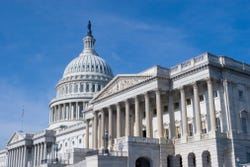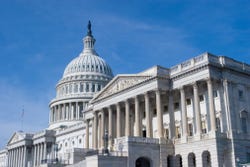FDA's not just sticking to warning letters anymore. Compliance is crucial and so is how a company reacts to a warning letter. An FDA expert explains what FDA watches for when it comes to dietary supplements compliance.
June 8, 2011

Yesterday, U.S. Marshalls seized UAS Laboratories' DDS line of probiotic products because of disease claims declared on the labels, according to the U.S. Food and Drug Administration (FDA). This latest product confiscation by FDA is one of many as the agency becomes more willing to conclude years of a dietary supplement company's regulatory missteps.
 FDA said that Minnesota-based UAS Laboratories claimed the DDS probiotics "could treat or prevent colds, flu, respiratory infections, urinary tract infections, yeast infections, ulcers and high cholesterol." Under the Federal Food, Drug, and Cosmetic Act only drugs, not dietary supplements, can be marketed with disease claims. The seized products include DDS Acidophilus, DDS Plus, Probioplus DDS, DDS Junior and Cran-Gyn DDS in capsules, powders and tablets.
FDA said that Minnesota-based UAS Laboratories claimed the DDS probiotics "could treat or prevent colds, flu, respiratory infections, urinary tract infections, yeast infections, ulcers and high cholesterol." Under the Federal Food, Drug, and Cosmetic Act only drugs, not dietary supplements, can be marketed with disease claims. The seized products include DDS Acidophilus, DDS Plus, Probioplus DDS, DDS Junior and Cran-Gyn DDS in capsules, powders and tablets.
On Monday, U.S. Marshalls seized another dietary supplement because it was unapproved and misbranded as a drug. Kansas-based Wyldewood Cellars elderberry juice products claimed to cure, treat or prevent various disease conditions, such as AIDS, diabetes and flu.
Product seizures a long time coming?
Both UAS Labs and Wyldewood Cellars received warning letters, but FDA follow-up inspections revealed the violations were ongoing.
"You're looking at the culmination of two years of increased enforcement action," said Jason Sapsin, lead attorney for Polsinelli Shughart's FDA practice. "It takes a while for non-emergency enforcement actions to percolate up through the system." Sapsin said the FDA has been working with UAS Labs since 2009 and Wyldewood since 2006.
"The FDA is committed to protecting consumers from unapproved products on the market," said Dara Corrigan, FDA's associate commissioner for regulatory affairs. "We will continue to take actions against companies that do not meet federal standards for safety, effectiveness and quality."
The NewHope360 article about the elderberry product seizure gathered mixed comments. One anonymous commenter defended elderberry, stating that the FDA should focus on all the junk in the market. Another anonymous commenter replied, "The FDA is in charge of making sure companies don't make claims about curing desease [sic] unless they can prove it. That's all they did here, they gave the company a chance to remove their claim or produce studies to prove their claims. The company failed."
Is your company susceptible to product seizure?
 FDA publishes guidance on the claims that can be made for dietary supplements, but it seems more dietary supplements companies are getting in hot water for not following this guidance. "Unfortunately in the world of dietary supplements there are so many opportunities for enforcement action," said Sapsin, referring to the technical nature of compliance.
FDA publishes guidance on the claims that can be made for dietary supplements, but it seems more dietary supplements companies are getting in hot water for not following this guidance. "Unfortunately in the world of dietary supplements there are so many opportunities for enforcement action," said Sapsin, referring to the technical nature of compliance.
This week, another FDA crackdown case—this time about Good Manufacturing Practices (GMPs)—has wrapped up. New Jersey-based Quality Formulation Laboratories and American Sports Nutrition, and its owner and managers, were found guilty of criminal contempt of court for violating GMPs. In 2008 and 2009, FDA inspections turned up rodents in the companies' manufacturing facility. The defendants agreed to an FDA mandate to shut down operations and reopen in sanitary conditions, but violated the order by restarting operations in another facility without FDA consent or knowledge.
FDA seems to be more willing now to bring many violation cases to conclusion, following its two-year trend of sending warning letters to promote compliance.
"That means that when you get a warning letter you should take it seriously," advised Sapsin. "Companies need to be careful and sophisticated in choosing their remediation strategies when violations are pointed out. It's not the case that companies have to automatically assume that they're at fault. But it's important that rather than viewing the agency as an adversary, the company should work to develop lines of communication with the FDA."
These filters cause the FDA to take notice—and take action:
Threat to public health.
Think tainted dietary supplements especially in what Sapsin calls "the unholy trinity:" muscle building, weight loss and sexual enhancement.
Products that make disease treatment claims.
Is the disease one that is posing particular concern at the moment? Diabetes and heart disease are also on FDA's radar.
History of noncompliance.
Companies that have had warning letters in the last five years and haven't changed their practices.
If you score high in one of these categories you may be a target, said Sapsin.
The Federal Trade Commission (FTC) has also been active with enforcement recently with its POM Wonderful and Dannon Activia yogurt cases. Traditionally, FDA has focused on labeling and FTC on advertising. But FDA defines labeling broadly, up to and including advertising. "Rather than FDA taking a dominant role, I think the agencies are working in closer concert together," said Sapsin.
About the Author(s)
You May Also Like




